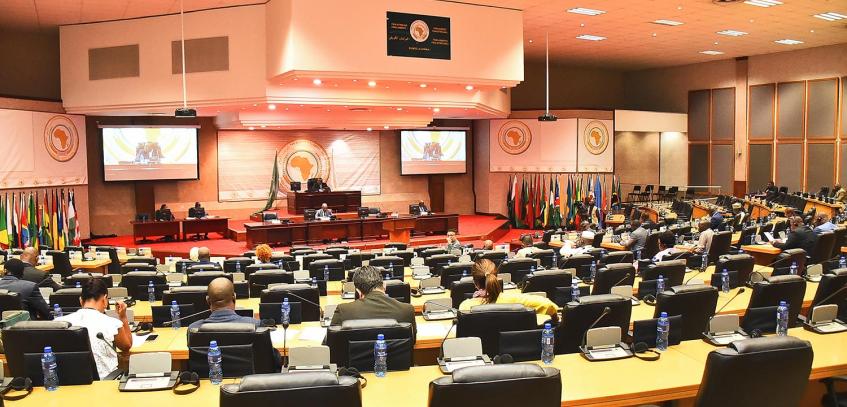African countries have been encouraged to look at ways of self-financing the fight against climate change through localised resource mobilisation.
This comes as the Sitting of Permanent Committees of the Sixth Parliament of the Pan-African Parliament (PAP) has roared to life under the African Union Theme of the Year for 2023, “The Year of AfCFTA: Accelerating the Implementation of the African Continental Free Trade Area” in Midrand, South Africa.
Chairperson of the Committee on Rural Economy, Agriculture, Natural Resources and Environment, Hon Didier Molisho Sadi said it is time for Africa to scale up national budgets given the reality of climate change.
"Climate change is a reality and no one can doubt that. In our respective countries, we are experiencing it. The crucial element is financing to combat climate change," said Hon Didier Molisho Sadi.
Taking into consideration the widespread devastating effects of climate change, Mr Pierre Larraouturou, a Member of the European Parliament, pointed out that it is high time African Union member countries looked at domestic financing to address climate change.
"The basic issue is how we can find fresh money to finance mitigatory measures against climate change. We do not want additional loans because we already have debts that we are unable to service. So we should start looking at how we can have grants and subsidies, for example, taxes on financial transactions, digital tax and also a tax on plastics," said Mr Pierre Larraouturou.
He added that there is a need to create synergies to pressurize banks and money providers to finance climate change programmes:
"Can the PAP come on board and work in pressuring national governments so that we get fresh money? If we pressurize our leaders, we can reach our objectives because we need to work together to reach our target. If we do not stop this climate change, crop production will further drop by 50 per cent. We will have to deal with up to 140 million climate change refugees, mainly women and children."
Climate change catastrophes and disasters have had devastating effects on food security while natural disaster incidences have also increased.
-Ends-








